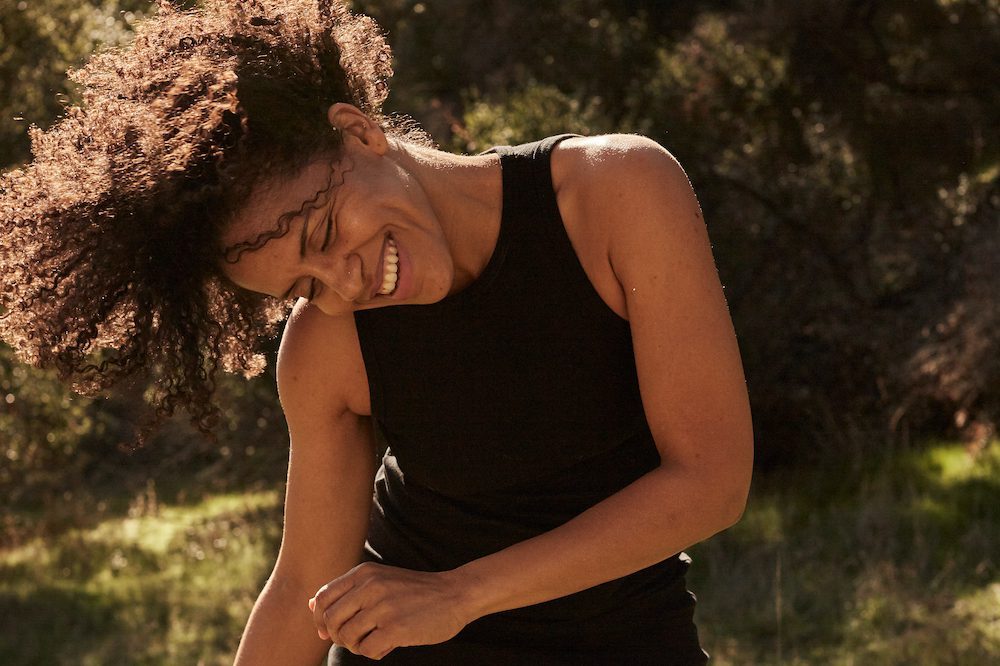PREMIERE: Monique DeBose Marries Motivational Speech with Soulful Singing on “Human Condition”


Monique DeBose has graced the world many times over with music that has a social message. From empowering singles aimed at celebrating women to her 2018 one-woman musical Mulatto Math: Summing Up the Race Equation in America, she infuses the passion for social justice that informs her career as a leadership coach and diversity consultant into her music. In her latest single, “Human Condition,” she spreads her work’s central message of self-love with an eclectic mix of genres and vocal styles.
Collaborating with motivational speaker and coach Preston Smiles, DeBose created a song that doubles as an inspirational sermon. Using electric bass, piano, drums, and synthesizer, the track combines the warm, comforting sound of a show tune with the catchiness and dance-ability of modern pop. She also brought in a choir, which surprisingly only consists of three people whose voices were recorded multiple times.
“It feels insane/But you stay in the game/It takes all you got,” DeBose opens. “You run away/and look to blame/emotions got you caught.” The verses mix theatrical notes and keys with energetic electronic beats, escalating to the choir powerfully belting the chorus, positioning the daily self-love struggle as “part of the human condition.” During an interlude, Smiles speaks about self-confidence: “Today’s transmission is a reminder of how powerful, how beautiful, how amazing you are.”
The song is about “owning all the parts of ourselves,” says DeBose. “So often, we are presenting what we think people want to see of us, what we think will get us approval, and much to the dismay of our full humanity, we don’t get to express all of who we are. That’s been a big part of my life, trying to be for others what I thought would be acceptable… [but] the things we may feel embarrassed or ashamed or sad about are also things that make us more fully expressed.”
In accordance with the therapeutic aim of the song, DeBose is offering a complimentary accompanying three-day Human Conditions course, where she’s teaching people how to embrace themselves as they are. She also created a fun lyric video, premiering today on Audiofemme, featuring illustrations of herself, Smiles, and the choir.
A rich and varied educational and professional background gives DeBose her unique sound and perspective. She got a degree in mathematics at UC Berkeley, which inspired the premise of her show Mulatto Math. “I have math equations I made up about beauty — what does blackness mean in the US? — and the equation gets more complicated throughout the play,” she explains. “You can’t define it — you have to define blackness for yourself.”
DeBose opened Mulatto Math with her latest single “Brown Beauty,” a body-positive love letter to women of color. This song spawned a video featuring women from across the globe who shared images of themselves, as well as a social media movement where DeBose shares some of these photos and pays homage to women of color who inspire her. The song was inspired by DeBose’s own experience learning how to take up space as a mixed-race woman. “It takes such complex navigation to be a black woman or a woman of color in the world we’re in because we’re navigating double consciousness and navigating code switching,” she says. “It’s a celebration: I see you, I love you, I know you’re doing the work and I don’t want you to go unrecognized.”
“Human Condition” and “Brown Beauty” are included on DeBose’s upcoming LP You Are the Sovereign One, set for release in late August. She describes it as a celebration of women owning their full selves. Over the course of 16 songs, she sings about “owning that part of yourself that you’ve hidden in the dark, that part of yourself that you’re ashamed to bring out, owning the parts of yourself that you’ve been embarrassed or afraid wouldn’t be well received.” It’s been recorded over the course of the past three years; some songs were written over 15 years ago, some within the last few months.
DeBose also started a podcast this summer called MORE with Monique that aims to help women find true satisfaction in different areas of their lives, from their relationships to their careers. “So often, as women in our society, we are really asked (or kind of told) from a very young age to put our needs to the side, to put our desires to the side, to put what we want to really help us live the most full thriving life to the side,” she says. This was also the idea behind her 2020 single “More,” a jazzy ode to women going after what they want.
This is the magic of DeBose’s work: she takes a concept and turns it into so many things, from art to self-help to education. She ascribes this ability to reach people in many different ways and communicate about challenging topics to her cultural background. “I call mixed people bridge people,” she says. “That’s always been my lens and my focus: diversity, inclusion, equity, being wiling to have hard conversations by default, actually being willing to be in uncomfortable situations, and growing the nervous system to be able to be in that space. It naturally lends itself to that work, and it naturally lends itself to the music I write, too. All the things I do. I can’t do things not based on my own life. I cannot.”
Follow Monique DeBose on Facebook and Instagram for ongoing updates.

